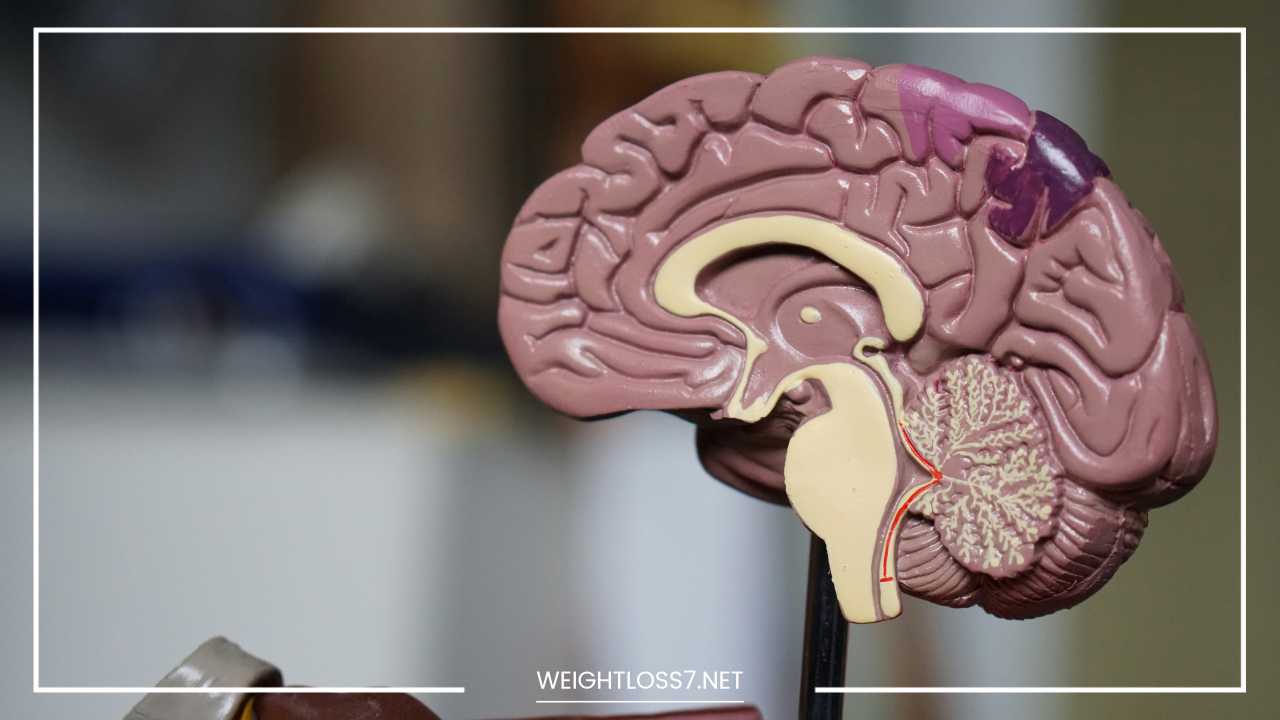How to Maintain Brain Health

Brain Health
Nurturing Your Mind: A Comprehensive Guide to Brain Health
Your brain is at the core of your existence—it processes your thoughts, drives your emotions, and controls your actions.
It is the central organ responsible for how you perceive the world and interact with it, making brain health a vital aspect of your overall well-being.
The way you care for your brain directly impacts your cognitive function, emotional resilience, memory, focus, and quality of life.
Just like the rest of your body, your brain needs regular attention to stay healthy and perform at its best.
The more you understand the key factors that contribute to brain health, the better equipped you’ll be to nourish and protect it throughout your life.
This comprehensive guide will explore the science behind brain health, delve into the lifestyle factors that can enhance your cognitive abilities, and offer actionable strategies to maintain your brain’s optimal functioning.
Understanding the Basics of Brain Health
Before diving into the specifics, it’s crucial to grasp the fundamental principles of brain health. The brain is one of the most complex and dynamic organs in the body, constantly evolving and adapting throughout your life. It relies on a delicate balance of nutrients, oxygen, and stimulation to perform its essential tasks.
The Brain’s Structure and Function
The human brain contains approximately 86 billion neurons (brain cells) and is responsible for controlling every function in the body.
These neurons communicate via electrical and chemical signals, forming intricate networks that govern everything from breathing to emotions to thought processes.
However, these networks are not static—they are constantly reorganizing and adapting in response to your experiences and environment, a phenomenon known as neuroplasticity.
Just like any other system in the body, the brain needs the right conditions to function optimally. Maintaining brain health is not only about preventing disease but also about supporting its natural processes and capabilities.
Key Factors Influencing Brain Health
There are several factors that directly impact brain health. These include the foods you eat, the amount of exercise you get, your mental engagement, your social connections, your sleep quality, and how well you manage stress.
Let’s dive deeper into these factors and explore how you can cultivate each one for the benefit of your brain.
1. Nutrition: Fueling Your Brain
Your brain requires specific nutrients to function at its highest potential. The brain consumes a significant amount of energy, using about 20% of your daily caloric intake despite representing only 2% of your body weight. The foods you eat can either enhance or impair your brain’s ability to think, focus, and remember.
Essential Nutrients for Brain Health:
- Omega-3 Fatty Acids: Found in fatty fish like salmon, sardines, and mackerel, as well as flaxseeds, walnuts, and chia seeds, omega-3s are essential for the structure and function of brain cells. They help form the cell membranes of neurons and support communication between cells. Omega-3s have also been linked to improved memory, learning, and a reduced risk of cognitive decline.
- B Vitamins (B6, B12, and Folate): These vitamins are crucial for maintaining the health of neurons and the production of neurotransmitters—chemicals that transmit signals across brain cells. Deficiencies in B vitamins have been associated with cognitive impairments, memory problems, and mood disturbances.
- Vitamin E: As a potent antioxidant, vitamin E protects brain cells from oxidative stress, which is linked to aging and neurodegenerative diseases. It helps prevent the accumulation of free radicals, which can damage brain tissue.
- Vitamin D: This vitamin plays a vital role in brain health, influencing everything from memory and mood regulation to neuroprotection. Studies suggest that vitamin D deficiency is associated with an increased risk of cognitive decline and mental health issues, including depression and anxiety.
Hydration:
The brain is composed of about 75% water, and staying hydrated is crucial for optimal brain function. Dehydration can impair cognitive abilities, reduce focus, and negatively impact your mood.
Aim to drink at least 8 glasses of water a day, more if you are physically active or in a hot environment.
Mindful Eating:
A diet rich in whole foods—fruits, vegetables, lean proteins, and whole grains—supports brain health by providing the necessary nutrients without the negative effects of processed foods, excess sugar, or unhealthy fats.
A balanced diet helps regulate blood sugar levels and supports mental clarity and focus throughout the day.
2. Physical Activity: Exercise Your Mind and Body
Exercise is one of the most powerful tools for improving brain health. Physical activity not only enhances your body’s health but also stimulates brain function, promotes neurogenesis (the creation of new neurons), and reduces the risk of cognitive decline.
Aerobic Exercise:
Engaging in regular aerobic exercise—such as running, swimming, cycling, or brisk walking—improves blood flow to the brain, delivering more oxygen and nutrients that support cognitive function.
Studies have shown that aerobic exercise can help improve memory, learning, and overall brain performance, while also promoting the growth of new neurons in the hippocampus, an area of the brain involved in memory and emotional regulation.
Strength Training:
While aerobic exercise is important for brain health, strength training exercises like weightlifting or bodyweight exercises are also beneficial. Strength training has been linked to improved cognitive function, particularly in older adults.
It helps increase muscle mass, improve balance, and even boost mood by stimulating the release of hormones such as endorphins and growth factors that support brain function.
Mind-Body Practices:
In addition to traditional forms of exercise, practices like yoga, tai chi, and Pilates can help reduce stress, improve focus, and increase mindfulness.
These mind-body practices also support the brain by lowering levels of the stress hormone cortisol, which, when elevated over time, can impair memory and learning.
3. Cognitive Stimulation: Keeping Your Mind Sharp
Just like your body, your brain needs regular stimulation to stay strong and flexible. Engaging in mentally stimulating activities keeps your brain sharp and can help prevent cognitive decline as you age.
Lifelong Learning:
Continuous learning is one of the best ways to keep your brain engaged. Taking up new hobbies, learning a new language, or even acquiring new job skills can challenge your brain in ways that enhance neuroplasticity.
It forces the brain to form new connections, which strengthens cognitive function and improves memory and problem-solving abilities.
Brain Games and Puzzles:
Activities like solving puzzles, crosswords, Sudoku, and playing memory or strategy games can help improve cognitive skills such as memory, attention, and problem-solving.
These exercises are designed to keep the brain engaged by challenging it to think critically and flexibly, which can help maintain cognitive sharpness over time.
Reading and Intellectual Engagement:
Reading books, articles, and research papers on a variety of topics helps expand your vocabulary, comprehension, and knowledge.
Intellectual engagement encourages critical thinking and improves your ability to concentrate. Studies have shown that individuals who read regularly are less likely to experience cognitive decline later in life.
4. Social Connection: Nourishing Your Relationships
Maintaining strong social connections is an important factor in mental health and cognitive function. Engaging with others—whether through family, friends, or community—provides emotional support, reduces stress, and fosters a sense of purpose.
Strong Social Bonds:
Having close relationships with family and friends has been shown to improve mental health and cognitive function. Social interaction helps reduce feelings of isolation, which are linked to cognitive decline.
Furthermore, being socially active has been associated with lower levels of stress and depression, both of which can negatively impact brain health.
Community Involvement:
Participating in community events, volunteer activities, or group hobbies can help build a sense of belonging and improve cognitive resilience.
Social engagement not only fosters new relationships but also provides opportunities for mental stimulation and emotional support, both of which are crucial for maintaining a healthy brain.
5. Stress Management: Calming Your Mind
Chronic stress is one of the most significant threats to brain health. Prolonged exposure to stress can impair memory, reduce focus, and increase the risk of mental health disorders. Therefore, managing stress is essential for protecting your brain.
Stress Reduction Techniques:
Mindfulness practices like meditation, deep breathing exercises, and progressive muscle relaxation help activate the parasympathetic nervous system, which promotes relaxation and reduces stress.
Regular mindfulness practice has been shown to increase gray matter in the brain, which is involved in memory, decision-making, and emotional regulation.
Time Management:
Effective time management can also help reduce stress. By setting priorities, breaking tasks into manageable chunks, and delegating when necessary, you can avoid feeling overwhelmed.
Taking regular breaks throughout the day and practicing self-care are also vital to managing stress levels.
Quality Sleep:
Sleep plays a critical role in cognitive function. During sleep, your brain consolidates memories, clears out toxins, and restores its energy.
Chronic sleep deprivation can lead to impaired memory, decreased learning ability, and mood disturbances. Adults should aim for 7-9 hours of quality sleep per night to support optimal brain health.
6. Regular Health Check-ups: Preventive Care for Brain Health
Routine health check-ups are an important part of maintaining brain health. Health conditions such as high blood pressure, diabetes, and high cholesterol can have a significant impact on cognitive function if left unchecked.
Routine Medical Examinations:
Regular check-ups with your healthcare provider can help detect conditions that might affect brain health, such as cardiovascular disease or metabolic disorders. Early intervention is key to managing these issues and preventing cognitive decline.
Mental Health Screening:
Mental health plays an integral role in brain health. Seeking help for mental health concerns, such as anxiety or depression, is important for overall cognitive function.
Untreated mental health conditions can contribute to brain fog, memory problems, and emotional instability.
7. Protecting Your Brain: Safety First
Preventing brain injuries and protecting your brain from harmful substances are essential for long-term brain health.
Head Injuries:
Traumatic brain injuries, such as concussions, can have long-term effects on cognitive function. Wearing protective gear like helmets when playing contact sports, biking, or engaging in other high-risk activities can help reduce the risk of head injuries.
Avoiding Substance Abuse:
Excessive alcohol consumption, recreational drug use, and smoking can all negatively affect brain health.
Limiting or avoiding these substances helps protect your brain from cognitive impairment, memory loss, and other long-term neurological effects.
Additional Tips for Optimal Brain Health
- Limit Screen Time: Excessive screen time, especially late at night, can disrupt sleep patterns and impact cognitive performance. Take regular breaks from screens and try to spend more time engaging in physical activity or face-to-face interactions.
- Engage with Music: Listening to music can have a positive effect on mood, cognitive abilities, and even memory. Studies suggest that music can enhance brain plasticity and help improve learning and creativity.
- Spend Time Outdoors: Nature has a restorative effect on the brain. Spending time in green spaces has been shown to reduce stress, improve cognitive function, and enhance overall mood.
- Practice Gratitude: Regularly reflecting on what you’re grateful for can help shift your mindset, reduce stress, and improve emotional well-being. Gratitude practice has been linked to better mental health and enhanced brain function.
Final Thoughts: A Lifelong Commitment to Brain Health
Brain health is a lifelong journey that requires commitment, care, and attention. By incorporating healthy habits into your daily life—such as eating a nutrient-rich diet, exercising regularly, engaging in mental stimulation, nurturing social connections, and managing stress—you can support your brain’s health and functionality for years to come.
Protecting and nourishing your brain is one of the best investments you can make for your future, helping to ensure that you enjoy clarity, creativity, and emotional resilience throughout your life.
Remember, brain health is a holistic endeavor. The more consistently you prioritize these habits, the stronger and more vibrant your brain will be, empowering you to live a life full of cognitive and emotional vitality.

















